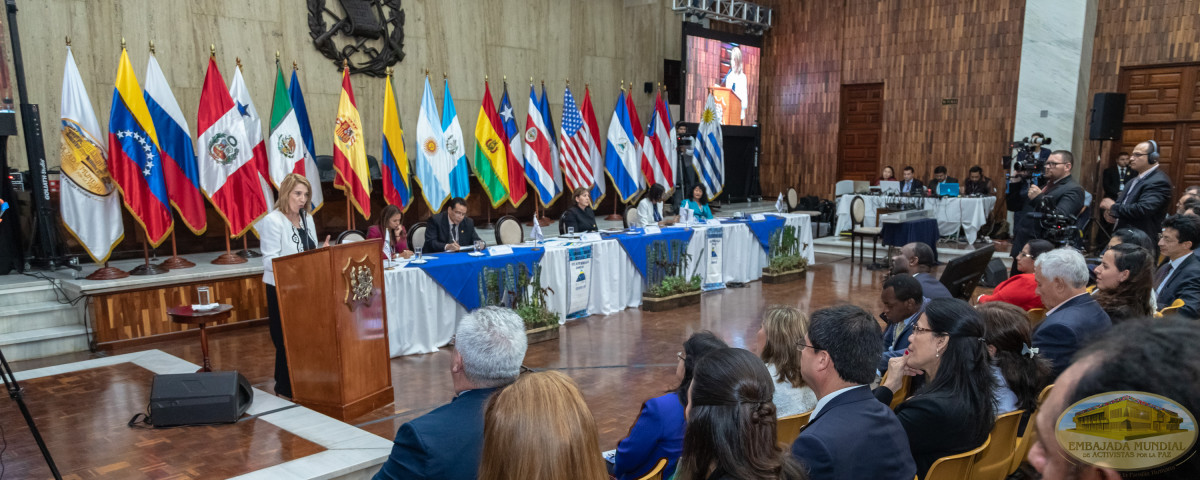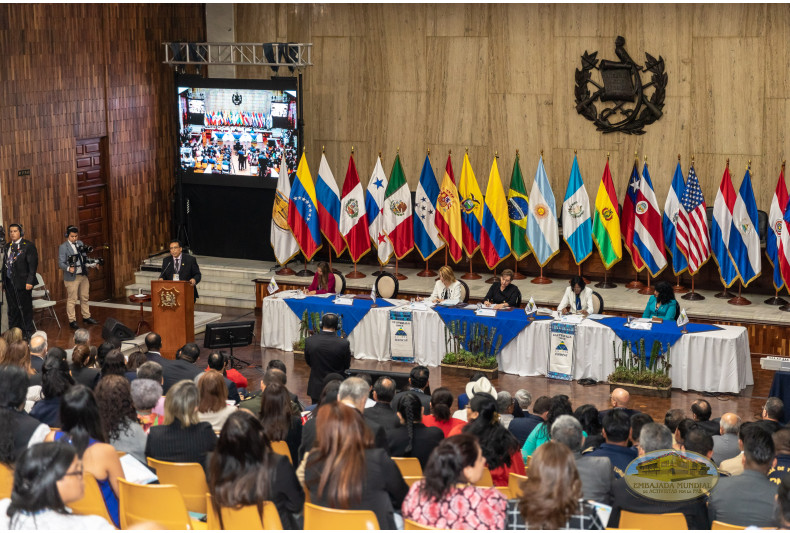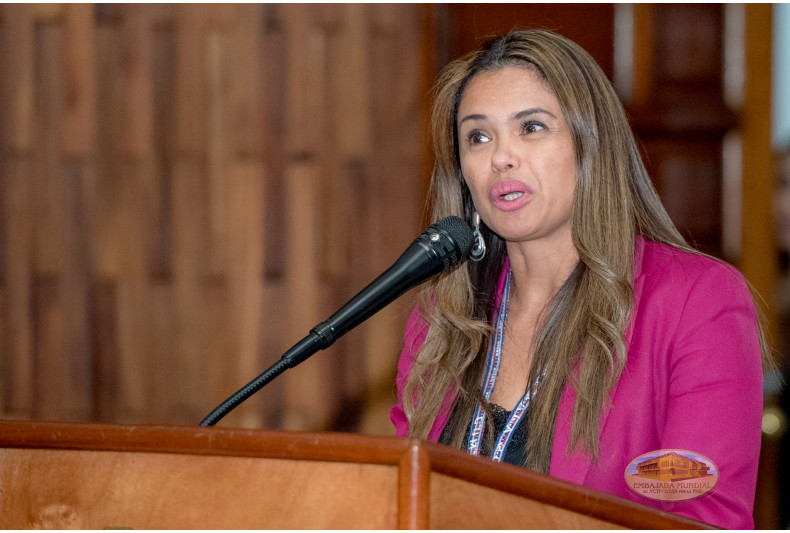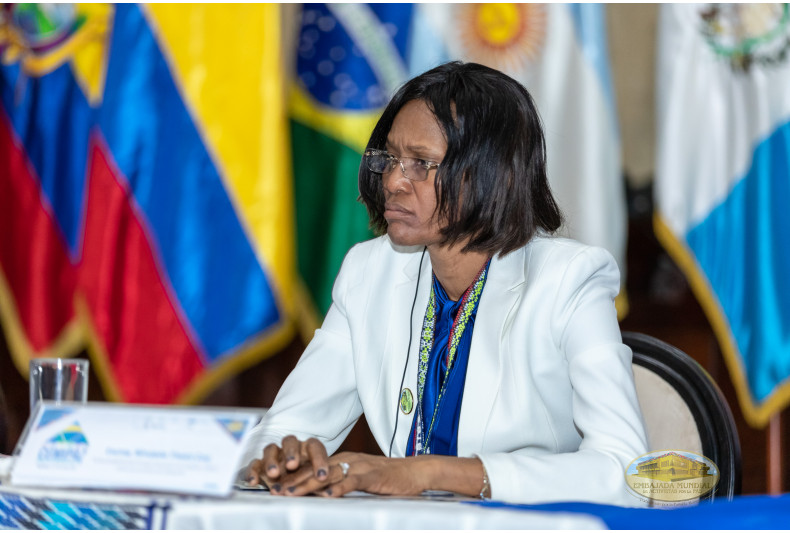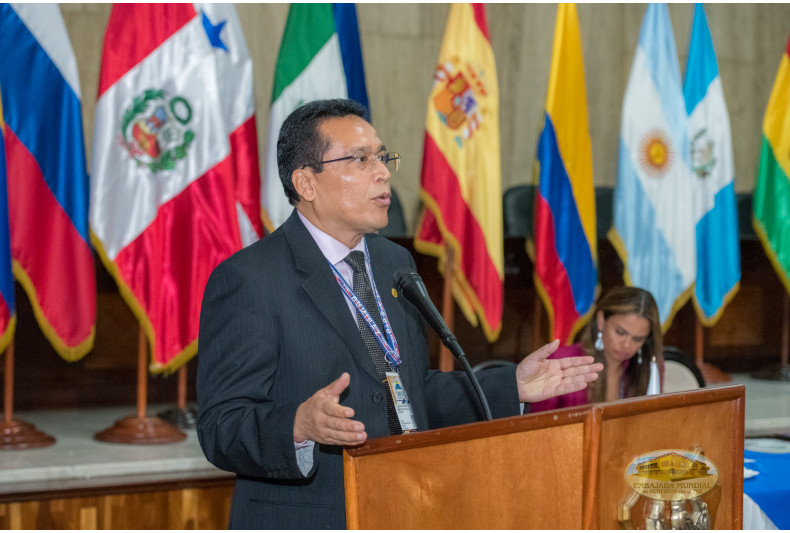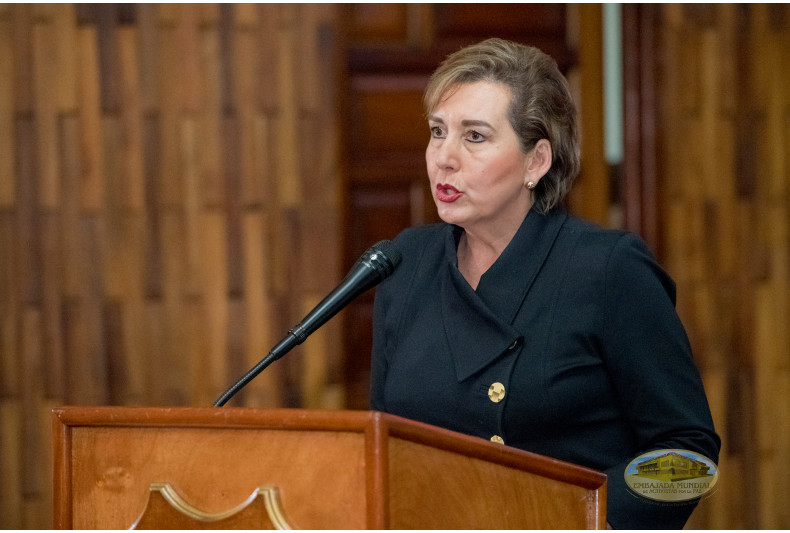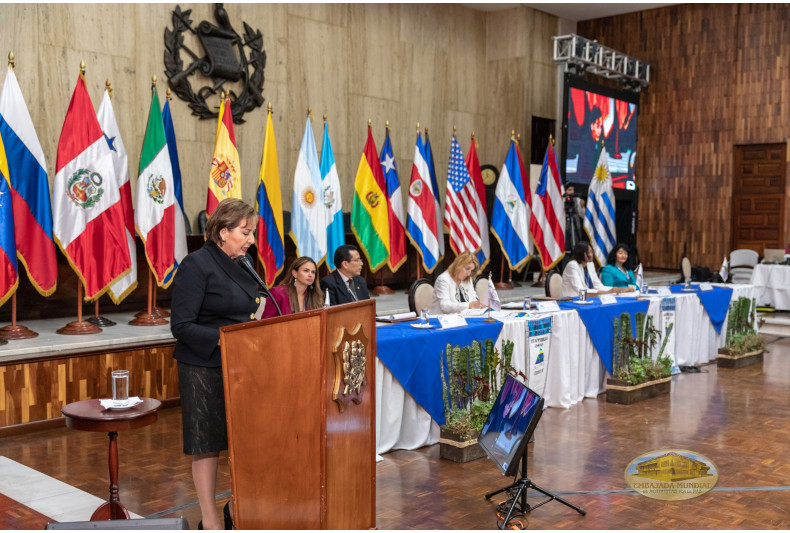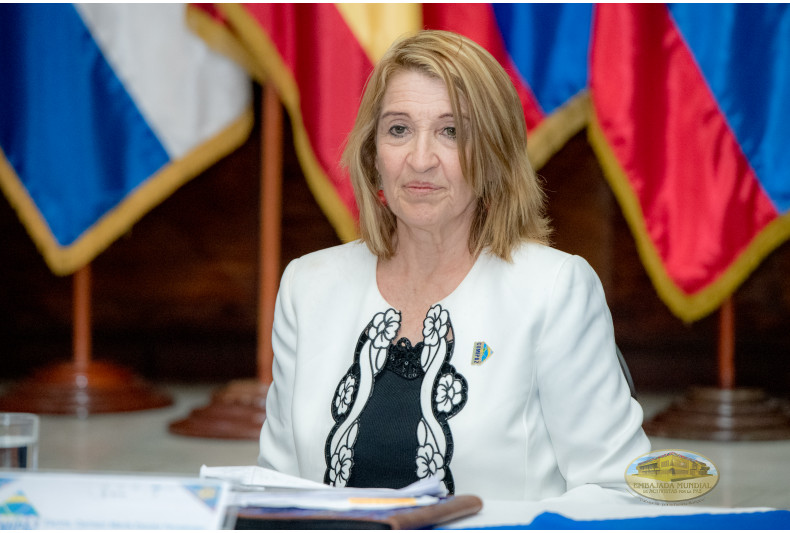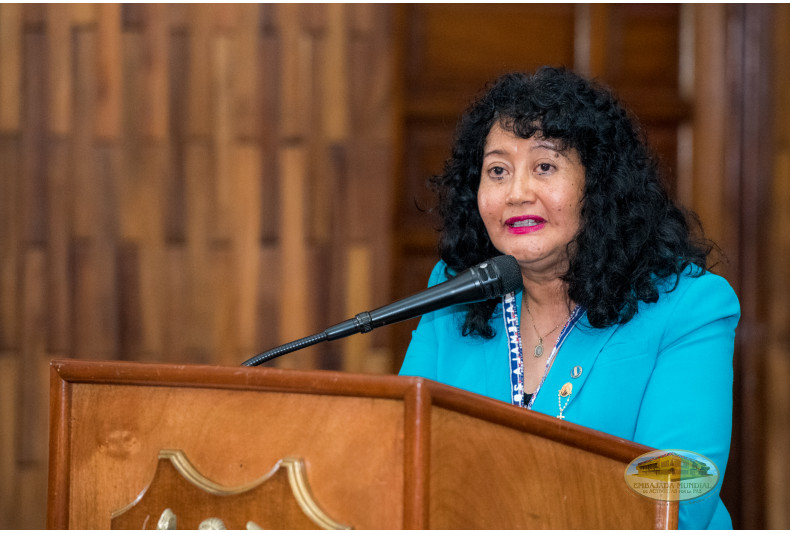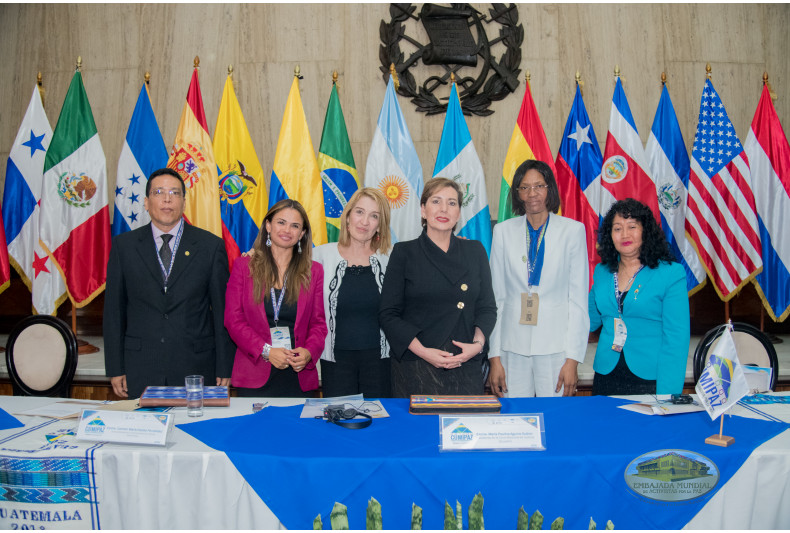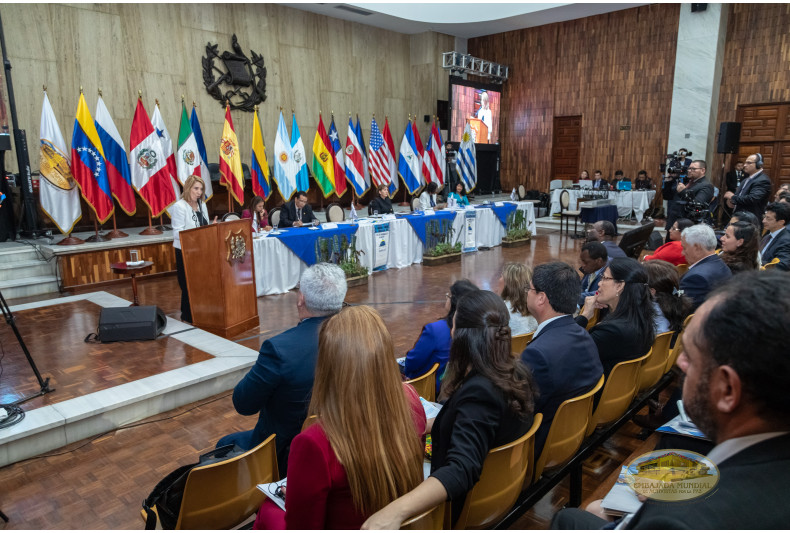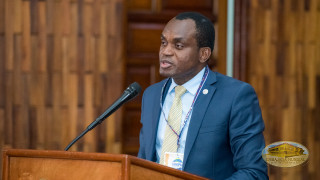Judicial Power: Responsibility in the construction of peace culture
See GalleryThe first panel of the Justice and Democracy Session of Peace Integration Summit (CUMIPAZ 2018) was made up of magistrates, presidents and vice-presidents of Supreme Courts, who developed the theme "Judges responsible for the delivery of justice and the generation of a culture of peace."
The first participation was given by María Paulina Aguirre, president of the National Court of Justice, Ecuador. As part of her presentation, she mentioned that the rule of law controls acts of power in a jurisdictional manner and that, in order to be subject to the law, two fundamental principles must be respected: the separation of powers and judicial independence.
Likewise, she expressed that a State subject to law needs to have independent judges for three reasons: to limit power, to protect the system of checks and balances, and to avoid interference in decision-making.
"These reasons have as a common result the protection of the Rule of Law, where one of the powers of the State must fulfill the primary function, to ensure compliance with the law."
On the other hand, Carlos Humberto Midence, magistrate of the Central American Court of Justice, of Honduras, in his speech referred that the creation of the Central American Court of Justice was initially structured and conformed through all the presidents of the Central American Cortes; those who made the statute for the creation of the court and the procedures.
"Within these procedures are the so-called consultations, a procedure that makes Central American justice effective in relation to the regional international treaty trade."
Peace must be established by justice
Windelle Coq Thelot, vice president of the Superior Council of Justice, Haiti, believes that peace must be established, first, by justice, which is the pillar of every society.
She emphasized that one must reflect on the main factors that guarantee timely and effective justice, where each State has its own court and that is accessible economically for every person.
The vice president said: "to have an effective justice we need a justice next in the sense that each district must have its own court, in addition justice must be accessible to everyone at home, because it costs too much, it is too expensive, we must reduce the cost ... to make it available to all citizens who are rich or poor."
In relation to justice as a generator of peace, the vice president of the Supreme Court of Justice of Costa Rica, Carmen María Escoto, referred to paragraph 16 of the Declaration of Rights of Man and Citizenship, promulgated since 1779, where it says:
"A society in which the guarantee of rights is not established, nor the separation of powers determined, has no constitution." The foregoing is fully valid today, said Escoto.
In the same way, Carmen Escoto said:
"The individual and collective dimension of independence is very important, in reality, independence is a human right addressed to judges as subjects of rights and obligations without distinction."
The support of the State is necessary
The president of the First Court of Criminal Sentencing, Narcoactivity and Crimes against the Environment of Higher Risk "A", Guatemala, Yassmin Barrios Aguilar, among the points discussed in her presentation, pointed out that judges are immersed in threats, violence and persecutions for administering justice.
"The State must determine where the threats come from to have support, not only from the State of Guatemala, but from the international community."
He also said: "We have our obligation as judges to face violence, but we also have to be protected in the moments that are necessary, in order to continue fulfilling that obligation that our Constitution and other laws mandate."
